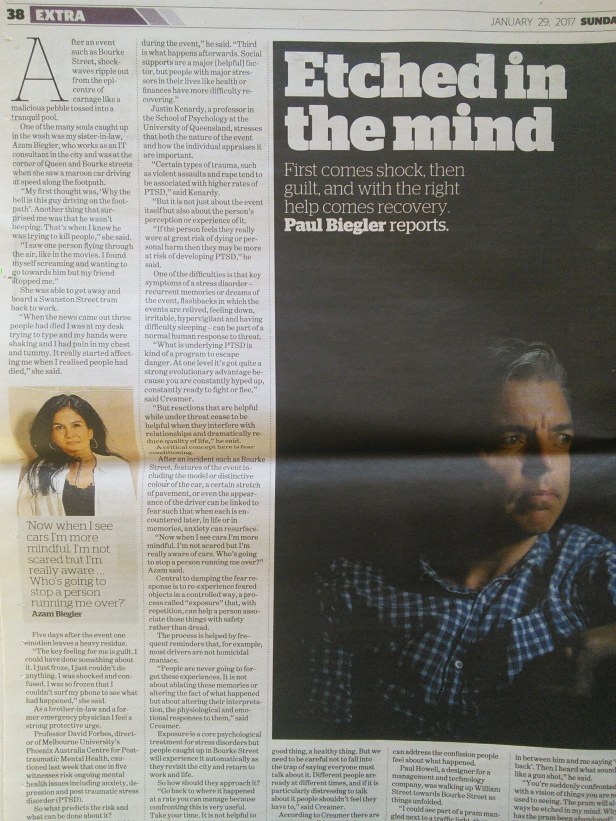Post-traumatic mental health: managing the emotional aftermath of the Bourke Street tragedy
After an event such as Bourke St, shockwaves ripple out from the epicentre of carnage like a malicious pebble tossed into a tranquil pool. One of the many souls caught up in the wash was my sister-in-law, Azam Biegler, who works as an IT consultant in the city and was at the corner of Queen and Bourke streets when she saw a maroon car driving at speed along the footpath.
“My first thought was ‘why the hell is this guy driving on the footpath.’ Another thing that surprised me was that he wasn’t beeping. That’s when I knew he was trying to kill people,” she said.
“I saw one person flying through the air, like in the movies. I found myself screaming and wanting to go towards him but my friend stopped me.” She was able to get away and board a Swanston Street tram back to work.
“When the news came out three people had died I was at my desk trying to type and my hands were shaking and I had pain in my chest and tummy. It really started affecting me when I realised people had died,” she said.
Five days after the event one emotion leaves a heavy residue.
“The key feeling for me is guilt. I could have done something about it. I just froze, I just couldn’t do anything. I was shocked and confused. I was so frozen that I couldn’t surf my phone to see what had happened,” she said.
As a brother-in-law and a former emergency physician I feel a strong protective urge. Professor David Forbes, Director of Melbourne University’s Phoenix Australia Centre for Posttraumatic Mental Health, cautioned last week that one in five witnesses risk ongoing mental health issues including anxiety, depression and post traumatic stress disorder (PTSD).
So what predicts the risk and what can be done about it?
Mark Creamer, Professorial Fellow in the Department of Psychiatry at the University of Melbourne, describes three categories. “Firstly, serious trauma in the past and prior mental health problems are risk factors. Second is the level of exposure to threat and to the death and suffering of others during the event,” he said.
“Third is what happens afterwards. Social supports are a major [helpful] factor, but people with major stressors in their lives like health or finances have more difficulty recovering.”
Read the full feature in the Age newspaper here

